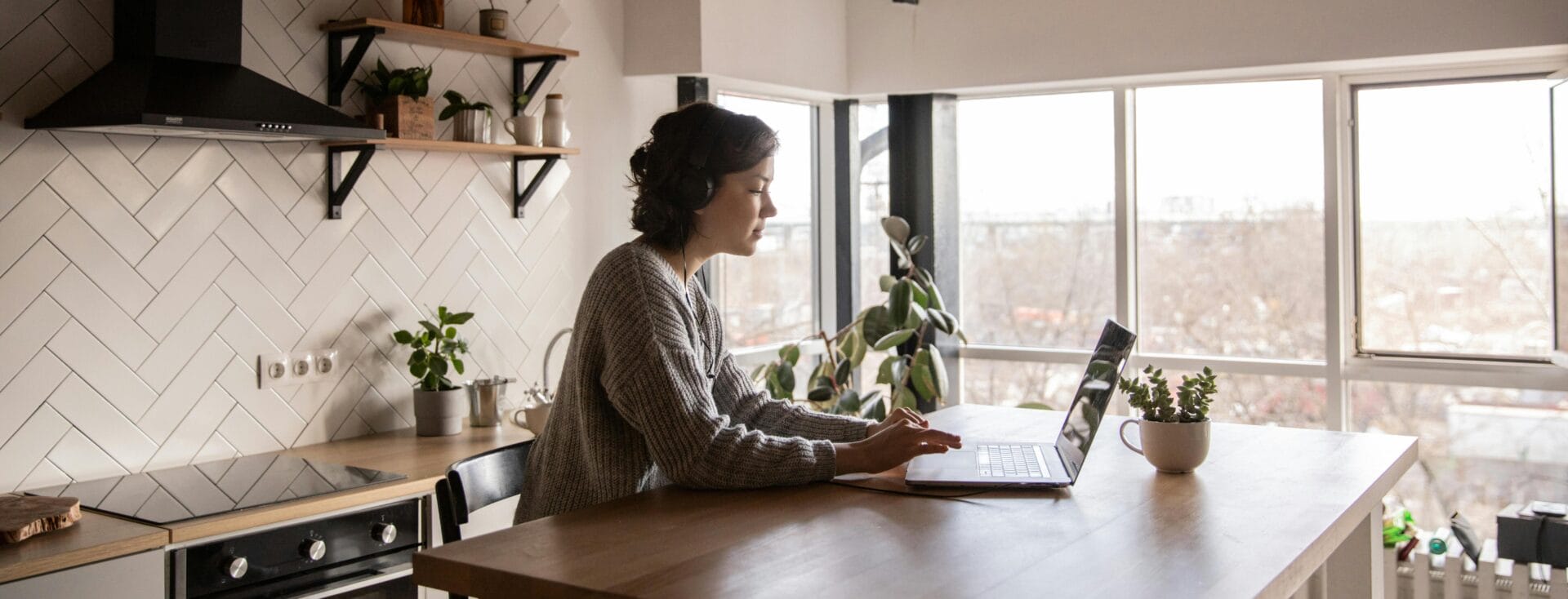You may be able to deduct home office expenses from your taxes if you are self-employed and operate from home, even if it’s just part-time.
Unfortunately, the incredible home office tax deduction that you have been hearing so much about does not apply to employees who have been working from home since the COVID-19 pandemic.
Qualifications to claim the home office tax deduction
If you utilize just one area of your house for business purposes and nothing else, you may be able to claim the home office deduction. All you need to do is confirm that, for tax reasons, your home office fits the IRS’s definition of a home office.
Home office definition
You must commonly and exclusively use your home office space for your self-employed company in order for the IRS to classify it as a home office. The office space must be either a separate building utilized in conjunction with your business or your principal place of business.
That being said, it’s not necessary to divide your home office from other spaces with a wall or other obstruction. You can still be eligible for the deduction, for instance, if you work from a desk in the living room corner as long as you don’t use that particular space for personal purposes.
Exceptions to the home office deduction
The home office requirements do not always apply. For example, in-home childcare providers are exempt from the exclusive use test requirements. There are two prerequisites you must fulfill in order to be eligible for the exception:
- You offer daycare services to children, the elderly, and anyone who’s incapable of taking care of themselves due to physical or mental impairments.
- According to state legislation, a daycare center must have a license, certification, registration, or approval (or be excluded from requiring one).
For individuals who keep product samples or business inventory in their homes, the IRS offers an additional exemption. In order to be eligible for this exemption and to deduct the home office, you have to fulfill the following conditions:
- As a company, you sell your goods at wholesale or retail.
- For business reasons, you maintain the samples or inventory in your house.
- The only place you use for business is at home.
- You frequently utilize the storage area for work-related needs.
- You utilize a space that is clearly marked as being appropriate for storage.
Categorizing home office business expenses
Direct and indirect costs are separated out in home office company expenses.
Expenses that are specific to your home office include supplies, furniture and equipment, and other related charges. On your income tax return, direct expenses are 100% deductible.
Indirect expenses include things like utilities, rent, insurance, security system fees, and other charges that aren’t specifically related to your home company. You divide the overall square footage of your home by the square footage of your home office to determine the deductible portion of these expenses.
How to calculate the home office deduction: The simplified method
If you find it tedious to calculate the percentages for your business costs, you can calculate your home office deduction using the simplified method.
To facilitate the computation of your home office deduction, the IRS provides taxpayers with a streamlined approach. Using the simplified method, you deduct a fixed rate per square foot, up to 300 square feet for the tax year 2023, which comes out to $5 per square foot. You can choose between the simplified method and tracking actual expenses each year.
Only self-employed individuals (such as independent contractors or freelancers) who operate from home are still eligible to use the simplified method.
Will claiming the home office tax deduction increase my chances of a tax audit?
There is no discernible increase in the likelihood of an audit when you choose to claim the home office deduction. Maintaining accurate documentation is always crucial, even if taking this tax deduction doesn’t increase the likelihood of an audit. Keep all of your receipts in a safe place so you have a backup copy for documentation purposes in case of an audit. Maintaining meticulous documentation of your earnings and outlays, including every single cent earned or spent, is a wise practice. In this manner, you’ll be prepared to support your claims with documentation in the event that the IRS does come knocking.


how would the IRS check if my office is eligible, or what proof do i give?
Can i write off my internet bill if i work from home?
Thanks this was helpful
Can you claim deductions on multiple home offices?
I was wondering how this works
Helpful!
Is this gonna change at all in 2025?